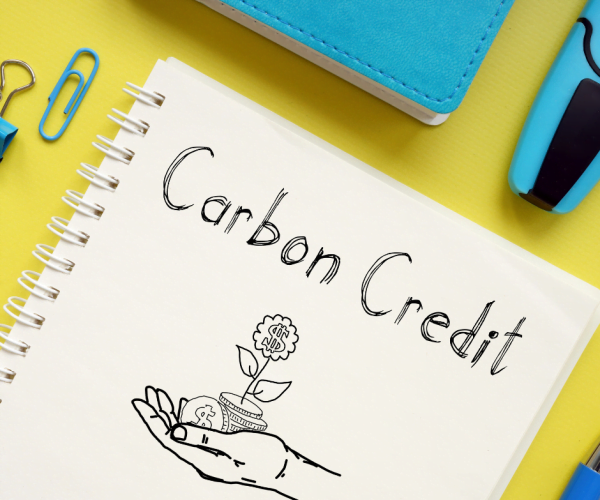Introduction
Carbon credit cryptocurrency has gained significant traction in recent years, offering a unique and eco-friendly investment opportunity. In this article, we will explore the best carbon credit cryptocurrency market and the top companies leading the way.
Key Takeaways:
- KlimaDAO, Toucan Protocol, Moss, Nori, and DevvStream are the top companies in the carbon credit cryptocurrency market.
- KlimaDAO aims to accelerate the price of emitting carbon by buying and retiring carbon offsets.
- Toucan Protocol facilitates the tokenization of carbon credits, allowing them to be traded on blockchain platforms.
- Moss tokenizes verified carbon credits and focuses on high-quality, transparent carbon credits, particularly those generated from forest preservation projects in the Amazon rainforest.
- Nori operates as a carbon removal marketplace, coordinating transactions between small farm-based suppliers and carbon credit buyers.
- DevvStream provides capital for carbon credit projects and utilizes blockchain technology to facilitate transparent and secure transactions.
- Registries like Verra and the American Carbon Registry have suspended the tokenization of retired carbon credits, pending further evaluation.
Understanding Carbon Credit Cryptocurrency and Its Benefits
Before diving into the best carbon credit cryptocurrency market, it’s important to understand the concept of carbon credits, the carbon market, and the role of blockchain technology in facilitating eco-friendly investments.
Carbon credits are tradable certificates that represent the reduction or removal of greenhouse gas emissions. They play a crucial role in the carbon market, where organizations can meet their emissions reduction targets by purchasing these credits. This allows them to offset their own carbon footprint and contribute to global efforts in combating climate change.

Blockchain technology has revolutionized the carbon credit industry by providing a transparent and secure platform for the tokenization and trading of these credits. By utilizing blockchain, carbon credits can be easily tracked and verified, ensuring their authenticity and preventing fraudulent activities. This technology also enables more efficient transactions, reducing administrative costs and increasing liquidity in the market.
Investing in carbon credit cryptocurrency offers several benefits. Firstly, it allows individuals and organizations to support projects that directly contribute to mitigating climate change. By purchasing carbon credits, investors can finance initiatives such as reforestation, renewable energy projects, and carbon capture and storage, thereby promoting sustainable development and reducing carbon emissions. Additionally, investing in carbon credit cryptocurrency provides an opportunity for financial returns, as the demand for these credits continues to grow.
Top Companies in the Carbon Credit Cryptocurrency Market
The best carbon credit cryptocurrency market is driven by innovative companies that aim to revolutionize the carbon market. Let’s explore some of the top carbon crypto companies to watch.
| Company | Description |
|---|---|
| KlimaDAO | KlimaDAO aims to accelerate the price of emitting carbon by buying and retiring carbon offsets. They enable individuals to invest in carbon credits and participate in carbon offset projects, creating a positive impact on the environment while generating potential financial returns. |
| Toucan Protocol | Toucan Protocol facilitates the tokenization of carbon credits, allowing them to be traded on blockchain platforms. This not only creates a liquid market for carbon credits but also ensures transparency and secure transactions. |
| Moss | Moss tokenizes verified carbon credits and focuses on high-quality, transparent carbon credits, particularly those generated from forest preservation projects in the Amazon rainforest. They provide a platform that connects project developers with buyers, unlocking the value of carbon credits and promoting sustainable initiatives. |
| Nori | Nori operates as a carbon removal marketplace, coordinating transactions between small farm-based suppliers and carbon credit buyers. They facilitate the purchase, verification, and sale of carbon removal certificates, allowing individuals and companies to support projects that directly remove carbon dioxide from the atmosphere. |
| DevvStream | DevvStream provides capital for carbon credit projects and utilizes blockchain technology to facilitate transparent and secure transactions. Their platform enables buyers and sellers to engage in carbon credit transactions, ensuring the traceability and credibility of carbon credits. |
These companies are working to bring liquidity and transparency to the carbon credit market through blockchain technology. By harnessing the power of crypto-backed carbon tokens and innovative platforms, they aim to make it easier for individuals and organizations to participate in carbon offsetting and contribute to a more sustainable future.
However, as the carbon credit cryptocurrency market evolves, concerns have been raised about the quality of carbon credits and the speculative nature of crypto-backed carbon tokens. Registries like Verra and the American Carbon Registry have suspended the tokenization of retired carbon credits, pending further evaluation. This showcases the need for continuous evaluation and regulation to ensure the credibility and integrity of the carbon credit market.
Challenges and Concerns in the Carbon Credit Cryptocurrency Market
While the carbon credit cryptocurrency market offers exciting opportunities, there are challenges and concerns that need to be addressed. Let’s explore the quality of carbon credits and the speculative nature of carbon tokens, as well as the role of registries in ensuring credibility.
One of the concerns in the carbon credit cryptocurrency market is the quality of carbon credits. With the increasing popularity of carbon credits as a means of offsetting carbon emissions, there is a growing demand for these credits. However, ensuring the quality and legitimacy of these credits can be challenging. Some carbon credits may not meet the necessary criteria for reducing emissions effectively, leading to doubts about their actual environmental impact. It is crucial for investors and market participants to conduct due diligence and verify the source and credibility of the carbon credits before investing.

Another concern is the speculative nature of carbon tokens. The value of carbon tokens can be subject to volatility due to market speculation and fluctuations in demand. This can lead to potential risks for investors, as the value of their investments may fluctuate significantly. It is important for individuals and organizations to carefully consider the risks involved and assess their risk tolerance before investing in carbon tokens.
Registries play a vital role in ensuring credibility and transparency in the carbon credit cryptocurrency market. Registries like Verra and the American Carbon Registry provide a framework for the issuance, tracking, and trading of carbon credits. They establish strict criteria for the verification and retirement of carbon credits, ensuring that only genuine and valid credits are traded. However, there have been instances where registries have suspended the tokenization of retired carbon credits due to concerns about the quality and integrity of these credits. This highlights the need for ongoing evaluation and stringent oversight to maintain the credibility and trustworthiness of the carbon credit market.
| Registries | Role |
|---|---|
| Verra | Verra is a global standard-setting organization that ensures the credibility and quality of carbon credits. They establish standards and protocols for the issuance and tracking of carbon credits, providing assurance to investors and market participants. |
| American Carbon Registry | The American Carbon Registry is a leading voluntary greenhouse gas registry in the United States. It provides oversight and verification services for carbon credit projects, ensuring their integrity and compliance with established standards. |
In conclusion, while the carbon credit cryptocurrency market presents exciting opportunities for investors and those passionate about combating climate change, it is essential to address the challenges and concerns surrounding the market. Ensuring the quality of carbon credits, addressing the speculative nature of carbon tokens, and strengthening the role of registries in maintaining credibility are all important steps towards a more transparent and sustainable carbon credit cryptocurrency market.
The Role of Blockchain Technology in the Carbon Credit Cryptocurrency Market
Blockchain technology plays a crucial role in the carbon credit cryptocurrency market by facilitating the tokenization of carbon credits, enabling transparent transactions, and driving liquidity for carbon removal projects. Tokenization of carbon credits allows for the division of carbon offsets into smaller, tradable units, making it easier to buy, sell, and track these credits on blockchain platforms. This creates a more accessible and efficient marketplace for carbon credits, opening up new opportunities for investors and participants in the carbon credit industry.
With the use of transparent transactions on the blockchain, carbon credit transactions can be verified and recorded publicly, ensuring the integrity and authenticity of each transaction. This transparency helps to eliminate fraud and provides confidence for investors and stakeholders in the carbon credit market. It also allows individuals and organizations to easily trace the origin and ownership history of carbon credits, promoting trust and accountability throughout the supply chain.

In addition to tokenization and transparent transactions, blockchain technology also contributes to driving liquidity for carbon removal projects. By utilizing blockchain-based platforms, companies can attract a wider range of investors and funding sources, making it easier to finance and scale up these projects. The increased liquidity in the market encourages more participation and innovation in the development of carbon removal projects, ultimately accelerating the transition to a more sustainable future.
However, it is important to address the concerns regarding the quality of carbon credits and the speculative nature of crypto-backed carbon tokens. Registries like Verra and the American Carbon Registry have suspended the tokenization of retired carbon credits, pending further evaluation. This highlights the need for regulatory oversight and industry standards to ensure the credibility and environmental impact of carbon credit cryptocurrency initiatives. As the market evolves, it will be essential to establish robust mechanisms for verifying and measuring the effectiveness of carbon offset projects, ensuring that they deliver tangible and meaningful carbon reductions.
Conclusion
The best carbon credit cryptocurrency market offers a unique opportunity to make eco-friendly investments while actively contributing to carbon offsetting efforts. By investing in carbon credit cryptocurrency, you can not only benefit your wallet but also help our planet thrive.
Investing in carbon credit cryptocurrency allows you to actively participate in carbon offsetting efforts while potentially reaping financial rewards. By supporting projects that reduce carbon emissions and protect our environment, you contribute to a more sustainable future. So, seize this opportunity to make eco-friendly investments and join the movement towards a greener planet!
FAQ
Q: What is carbon credit cryptocurrency?
A: Carbon credit cryptocurrency refers to the use of blockchain technology to facilitate the trading and tokenization of carbon credits. It allows individuals and organizations to invest in carbon credits as a form of offsetting their carbon emissions, while also providing liquidity and transparency to the carbon credit market.
Q: What are the top companies in the carbon credit cryptocurrency market?
A: The top companies in the carbon credit cryptocurrency market include KlimaDAO, Toucan Protocol, Moss, Nori, and DevvStream. These companies are at the forefront of leveraging blockchain technology to revolutionize the carbon credit industry.
Q: What does KlimaDAO aim to achieve?
A: KlimaDAO aims to accelerate the price of emitting carbon by buying and retiring carbon offsets. Through their platform, individuals and organizations can contribute to reducing carbon emissions and combat climate change.
Q: What is the focus of Moss?
A: Moss focuses on tokenizing verified carbon credits, with a particular emphasis on high-quality and transparent carbon credits. They prioritize credits generated from forest preservation projects in the Amazon rainforest, contributing to the protection of this vital ecosystem.
Q: How does Nori operate in the carbon credit market?
A: Nori operates as a carbon removal marketplace, facilitating transactions between small farm-based suppliers and carbon credit buyers. Their platform aims to incentivize and support carbon removal projects, promoting sustainable agriculture and mitigating climate change.
Q: What does DevvStream do in the carbon credit market?
A: DevvStream provides capital for carbon credit projects and utilizes blockchain technology to facilitate transparent and secure transactions. They play a crucial role in funding and supporting initiatives that contribute to carbon offsetting and emission reduction.
Q: What are the concerns in the carbon credit cryptocurrency market?
A: There are concerns regarding the quality of carbon credits and the speculative nature of crypto-backed carbon tokens. Registries like Verra and the American Carbon Registry have suspended the tokenization of retired carbon credits, pending further evaluation to ensure credibility and transparency.
Q: How does blockchain technology contribute to the carbon credit market?
A: Blockchain technology enables the tokenization of carbon credits, facilitating transparent transactions and providing liquidity to the market. It also helps ensure secure and efficient verification of carbon credits, enhancing trust and accountability in the carbon credit industry.
